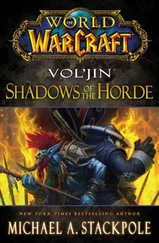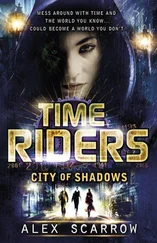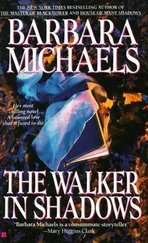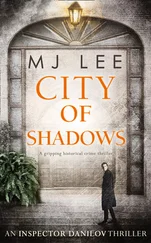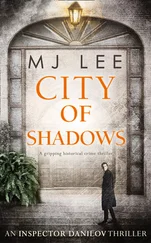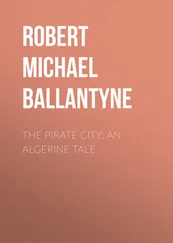Michael Russell - The City of Shadows
Здесь есть возможность читать онлайн «Michael Russell - The City of Shadows» — ознакомительный отрывок электронной книги совершенно бесплатно, а после прочтения отрывка купить полную версию. В некоторых случаях можно слушать аудио, скачать через торрент в формате fb2 и присутствует краткое содержание. Жанр: Исторический детектив, на английском языке. Описание произведения, (предисловие) а так же отзывы посетителей доступны на портале библиотеки ЛибКат.
- Название:The City of Shadows
- Автор:
- Жанр:
- Год:неизвестен
- ISBN:нет данных
- Рейтинг книги:5 / 5. Голосов: 1
-
Избранное:Добавить в избранное
- Отзывы:
-
Ваша оценка:
- 100
- 1
- 2
- 3
- 4
- 5
The City of Shadows: краткое содержание, описание и аннотация
Предлагаем к чтению аннотацию, описание, краткое содержание или предисловие (зависит от того, что написал сам автор книги «The City of Shadows»). Если вы не нашли необходимую информацию о книге — напишите в комментариях, мы постараемся отыскать её.
The City of Shadows — читать онлайн ознакомительный отрывок
Ниже представлен текст книги, разбитый по страницам. Система сохранения места последней прочитанной страницы, позволяет с удобством читать онлайн бесплатно книгу «The City of Shadows», без необходимости каждый раз заново искать на чём Вы остановились. Поставьте закладку, и сможете в любой момент перейти на страницу, на которой закончили чтение.
Интервал:
Закладка:
At Christmas Hannah did believe Stefan Gillespie really would find out what had happened to her friend. Perhaps he would have done, despite the doors that were slammed in his face. But he had his own problems. She didn’t know everything, but she was aware that he had been close to losing his job. He had written once, early in January. She knew he was sitting on a hillside in West Wicklow, fighting to stop his son being taken away, because of what he thought or what he didn’t think, because of who he was, and who his parents and grandparents were. He was probably very new to that. She wasn’t. It came as easily and familiarly as breathing. Stefan had been in her mind a lot since she’d left Ireland. During those three months in Europe she had come close to contacting him several times. Sometimes she told herself it was only because Susan’s death was still there, still unresolved, but there were other reasons, and they had as much to do with what was unresolved in her own life as with her friend’s murder. However, she had made decisions about her life that she couldn’t change. It was too late now. She would be back in Palestine soon. She didn’t know when she would return to Europe or to Ireland. Perhaps she never would. But there was still the debt of love she owed her friend. It wasn’t enough that Susan’s death was forgotten. She knew where Francis Byrne was; Stefan Gillespie had told her that much. And if no one could find Hugo Keller, she would at least find the priest.
It was late when Hannah arrived in Danzig. The train had few passengers. When she had crossed the border, the flags were the flags of the Free City, a bright, cheerful red with a crown and two white crosses. The policeman who gave her passport a cursory glance wore the same insignia on his uniform. She had travelled on in the darkness, too tired to do anything other than stare at her reflection in the glass of the carriage, yet not tired enough to sleep. She had no expectations of the city. Danzig had its problems, she knew that, but it wasn’t Germany. Yet it was still a journey no one would want her to make. It would irritate Benny; it was all too personal. But in the end he would understand, at least he would do what he did when she annoyed him — say nothing. Sometimes a show of anger from him would have made her feel less patronised. But all that was for another day now.
When she stepped off the train at Danzig Hauptbahn, the flag of the Free City was nowhere to be seen. This wasn’t Germany; it was supposed to be another country, but every platform was draped with swastikas. And as she walked out to the station forecourt, the men standing around the Imbiss stall, eating bratwurst and drinking beer, wore the brown uniform of the Nazi SA. They were the first stormtroopers she had seen outside a newsreel.
The dining room of the Hotel Danziger Hof was noisy with breakfast. It had been almost empty when Hannah Rosen entered, but almost immediately it started to fill up. There was a crowd at the door now, waiting for tables. She sat by a window, looking out at the Hohe Tor, the High Gate, a great blockhouse of bricks pierced by an arch, once the main gate through the city’s encircling fortifications. The walls had been demolished to make room for the modern city, though as modern cities went Danzig wore its antiquity with pride. Once it had been an independent city-state, and it had maintained that independent spirit through the centuries of war that sucked it in and out of the kingdoms of Poland and Prussia. A hundred and fifty years ago the city had fought to remain part of a Poland that guaranteed both its autonomy and its Germanness, in the face of a Prussian juggernaut that had no use for any kind of Germanness other than its own. But that was long forgotten. Beyond the window of the Danziger Hof, in front of the Hohe Tor, was the statue of a man on a horse, wearing a spiked helmet; Kaiser Wilhelm, the first emperor of the unified Germany that had incorporated Danzig into its territory for barely fifty years before the First World War, finally sweeping away its cantankerous independence in a great tide of all-embracing Germanness. Now the Free City of Danzig stood on its own again, a tiny statelet, barely the size of Wicklow, locked in by Poland in the west and south and by German East Prussia to the east. The Free City was the creation of a fledgling League of Nations whose high democratic ideals sat uneasily with the city’s new purpose: to punish Germany for a world war and to pacify Poland. At the heart of the Free City, the League’s High Commissioner fought with the only weapons available to him, little more than good-humour and patience, to defend a democracy almost everyone in the city-state seemed to despise. The last thing German Danzig wanted was to be free again. It was typical of the city’s bloody-mindedness that having regained its ancient independence, most of its inhabitants dreamt only of disappearing back into the all-consuming sea of Germany once more.
‘The Free State of Danzig was involuntarily severed from Germany on January 10th, 1920 by the Treaty of Versailles.’ Hannah read from the guide book she had found in her room. She had brought it with her for the map, but she was grateful that it gave her something to do now. ‘In the face of all force the city has defended its German character through the ages; its very architecture speaks of German character, German art and German will.’ A tour of historical Danzig was the last thing on Hannah’s mind, but The Important Sights of Danzig , along with the view of the Kaiser’s statue and the Hohe Tor, at least kept her eyes from the busy dining room she wished she had walked straight past when she came down from her room. She was uneasy. She would drink her coffee as quickly as she could. She would eat whatever came. Or if it took much longer she would just leave anyway.
The tables were almost entirely full of men, businessmen, salesmen, politicians, journalists. In a few days Danzig would vote for a new parliament. The expectation was that the ruling Nazi Party would win, very comfortably, the overall majority it needed to change the constitution, dispose of the opposition, kick out the League’s High Commissioner, and make this the last election the city would ever see. The road to reunification with Germany would follow; Hitler had already set a pattern for the abolition of democracy by democratic means. Danzig would be next.
Dotted everywhere among the dark business suits, contributing loud, excitable, argumentative voices to the buzz of conversation, were the uniforms of Nazism, of the Danzig Party and visiting SA and SS dignitaries from Germany. Hannah hadn’t expected to be thrown so completely into this world. The Nazis had power in Danzig, but there was still a constitution that was meant to stop them abusing it — at least that’s what the English newspapers said. Yet walking the short distance from the station to Dominikswall and the Danziger Hof the night before it didn’t feel like that. The dark streets were lined with the red, white and black of the crooked cross. In Elisabethwall she stopped to ask for directions. When she turned to walk on she saw she was standing in front of a shop selling children’s clothes. The windows were broken. A Star of David was daubed on the door; and the words ‘Die Juden sind unser Ungluck’. The Jews are our misfortune.
She had slept very little that night. She had thought about Stefan. Now she wished he was with her. She told herself it was because he knew what to say, because he would know what was true and what wasn’t, but it was also because she felt he would make her stronger. She hadn’t considered Danzig being another Germany now. She should have done. She read the papers. Sometimes she could be too single-minded to think things through; her mother always said that. But when her mother said it there was usually something to laugh about. Now she was having breakfast in a room full of Nazis. She felt people were looking at her, and they were. There were other women in the dining room, but she was the only one on her own, fair game for businessmen and reps with nothing better to do. Normally it wouldn’t have bothered her, but now she was starting to feel she couldn’t breathe. A tall SS man was trying to catch her eye. He had been looking at her since he came in.
Читать дальшеИнтервал:
Закладка:
Похожие книги на «The City of Shadows»
Представляем Вашему вниманию похожие книги на «The City of Shadows» списком для выбора. Мы отобрали схожую по названию и смыслу литературу в надежде предоставить читателям больше вариантов отыскать новые, интересные, ещё непрочитанные произведения.
Обсуждение, отзывы о книге «The City of Shadows» и просто собственные мнения читателей. Оставьте ваши комментарии, напишите, что Вы думаете о произведении, его смысле или главных героях. Укажите что конкретно понравилось, а что нет, и почему Вы так считаете.

